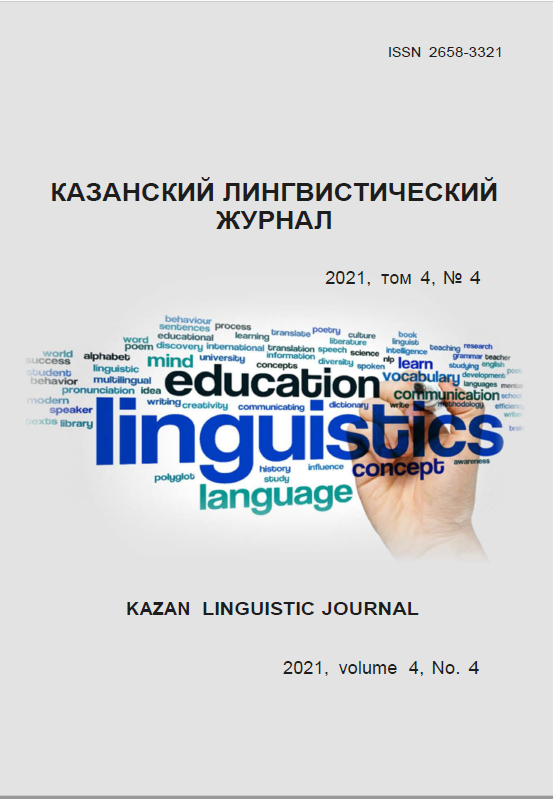Benefits of Montessori pedagogy in inclusive education practice
https://doi.org/10.26907/2658-3321.2021.4.4.589-605
Ключевые слова:
Montessori pedagogy, disabled, inclusion, social pediatrics, education, childrenАннотация
The article describes the authors’ personal experiences and the associated benefits of Montessori pedagogy for the common upbringing of disabled and non-disabled children. These experiences are important in the context of the current discussion on inclusion. The common upbringing of disabled and non-disabled children means the necessity of adapting a weak child to the strong world. From the point of view of social pediatrics, inclusive education serves to promote children’s social development, the development of independence and the ability to make contacts. Active learning, prepared surroundings, free movement, heterogeneous learning groups, social and cognitive support – these principles are the advantages of Montessori pedagogy for inclusion. A great advantage for the common upbringing of disabled children is the use of the Montessori material: materials for practicing practical life and dealing with the sensory material. The Montessori pedagogy as a child-centered pedagogy has proven to be ideal for the common upbringing multiple and different, also mentally handicapped children with non-handicapped, also highly intelligent children.
Литература
- Hellbrügge T. Unser Montessori-Modell-Erfahrungen mit einem neuen Kindergarten und einer neuen Schule. München: Kindler; 1977.
- Hellbrügge T. Zur Problematik der Säuglings- und Kleinkinderfürsorge in Anstalten. Hospitalismus und Deprivation in: H. Opitz & Schmid (Hrsg.): Handbuch der Kinderheilkunde. Berlin/Heidelberg/New York: Springer. 1966; III (5): 385–404.
- Hellbrügge T. Zur Prognose des frühkindlichen Deprivationssyndroms bei Heimkindern in: Schriftenreihe der Deutschen Zentrale für Volksgesundheitspflege e. V. 1970; 17(5): 42–58.
- Pechstein J. Umweltabhängigkeit der frühkindlichen zentralnervösen Entwicklung. Schriftenreihe aus dem Gebiete des öffentl. Gesundheitswesen, 34. Stuttgart: Thieme; 1974.
- Fischer A. Aufbau eines Gesundheitserziehungsprogramms durch einen Wohlfahrtsverband in: Bundesvereinigung für Gesundheitserziehung (Hrsg.): Gesundheitserziehung von A bis Z, 5 Liefg. (1959). Bonn: Bundesvereinigung für Gesundheitserziehung e. V; 1956.
- Eckert E. & Waldschmidt I. Vorwort. In dies. (Hrsg.) Inklusion: Menschen mit besonderen Bedürfnissen und Montessori-Pädagogik. Berlin, Münster: LIT-Verlag; 2010.
- Hellbrügge T. Kindliche Sozialisation und Sozialentwicklung. Fortschr. d. Sozialpädiatrie. München; Urban & Schwarzenberg.1975; (2).
Библиографические ссылки
References
Hellbrügge T. Our Montessori model-Experiences with a new kindergarten and a new school. Munich: Kindler; 1977.
Hellbrügge T. On the problem of infant and young child care in institutions. In: H. Opitz & Schmid (eds.): Handbook of Pediatrics. Berlin/Heidelberg/New York: Springer. 1966; III (5): 385–404.
Hellbrügge T. On the prognosis of early childhood deprivation syndrome in home children in: Schriftenreihe der Deutschen Zentrale für Volksgesundheitspflege e. V. 1970; 17(5): 42–58.
Pechstein J. Environmental dependence of early childhood central nervous development. A series of publications from the field of public art. Health Care, 34. Stuttgart: Thieme; 1974.
Fischer A. Establishment of a health education program by a welfare association in: Bundesvereinigung für Gesundheitserziehung (ed.): Health education from A to Z, 5 Liefg. (1959). Bonn: Bundesvereinigung für Gesundheitserziehung e. V; 1956.
Eckert E. & Waldschmidt I. Preface. In this. (Ed.) Inclusion: People with special needs and Montessori pedagogy. Berlin, Münster: LIT-Verlag; 2010.
Hellbrügge T. Child socialization and social development. Progress. d. Social pediatrics. Munich; Urban & Schwarzenberg.1975; (2).






